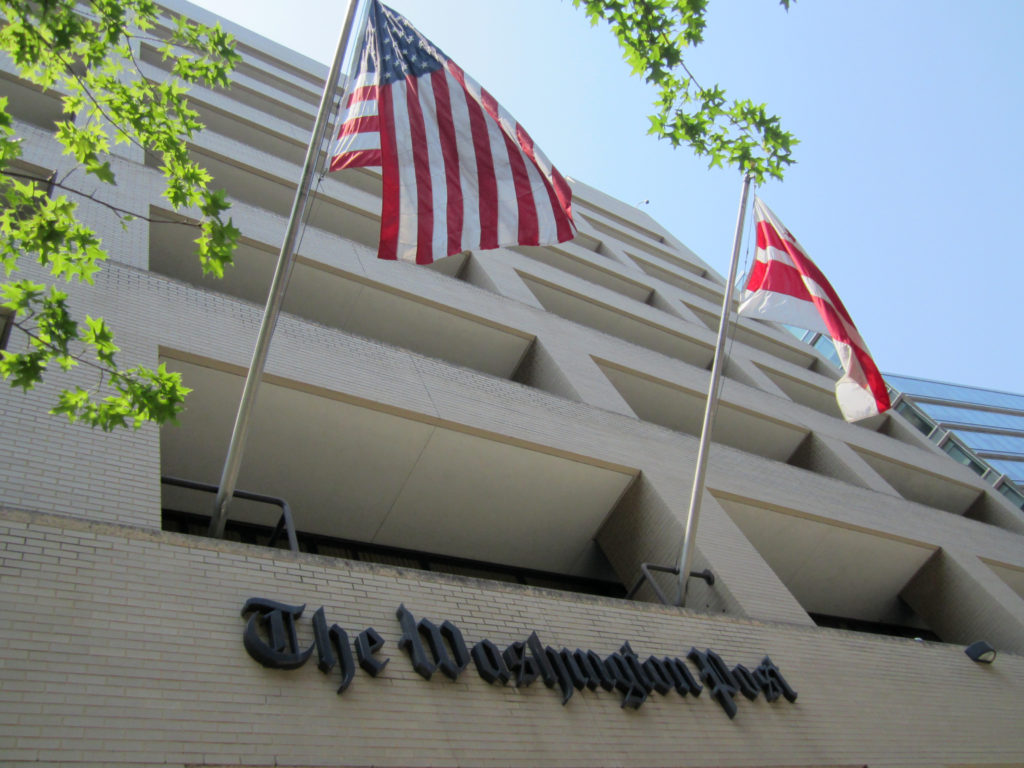Originally published on MintPress News.
AUSTIN, Texas — Amid a wave of widespread criticism and legal threats, the Washington Post has added a lengthy editor’s note to an article which alleged that a host of independent media websites were spreading Russian propaganda.
Washington Post added editor's note to top of "Russian propaganda" story after being called out for shoddy reportinghttps://t.co/dWKbZJGS9a pic.twitter.com/skGiZUX2Ls
— Ben Norton (@BenjaminNorton) December 7, 2016
The article, written by Craig Timberg and published on Nov. 24, relied largely on information compiled byPropOrNot, an anonymous group that claims to be comprised of media analysts and researchers. At the time the Post story was published, the group’s homepage featured a list of 200 websites, including MintPress News and many other well-established independent media outlets, which the organization alleges are either deliberately or inadvertently spreading Russian propaganda.
Among other criticisms levied against the group, PropOrNot’s research depends on overly broad criteria. According to its own stated methodology, criticism of the ”US, Obama, Hillary Clinton, the EU, Angela Merkel, NATO, Ukraine, Jewish people, US allies, the ‘mainstream media,’ and democrats, the center-right or center-left, and moderates of all stripes,” would be grounds for inclusion on “The List.”
The Post added an editor’s note to the article on Wednesday in an apparent attempt to distance the newspaper from the controversy.
“The Washington Post on Nov. 24 published a story on the work of four sets of researchers who have examined what they say are Russian propaganda efforts to undermine American democracy and interests,” the note begins.
While Timberg’s article does refer to the work of multiple researchers, the bulk of the report relied on allegations made by PropOrNot.

The Washington Post continued:
One of them was PropOrNot, a group that insists on public anonymity, which issued a report identifying more than 200 websites that, in its view, wittingly or unwittingly published or echoed Russian propaganda. A number of those sites have objected to being included on PropOrNot’s list, and some of the sites, as well as others not on the list, have publicly challenged the group’s methodology and conclusions. The Post, which did not name any of the sites, does not itself vouch for the validity of PropOrNot’s findings regarding any individual media outlet, nor did the article purport to do so.
Numerous websites, including MintPress, have objected to their inclusion on “The List.” On Tuesday, James Moody, the lawyer representing the publisher of the website Naked Capitalism, demanded a formal retraction and public apology on Tuesday. Moody wrote:
You did not provide even a single example of “fake news” allegedly distributed or promoted by Naked Capitalism or indeed any of the 200 sites on the PropOrNot blacklist. You provided no discussion or assessment of the credentials or backgrounds of these so-called “researchers” (Clint Watts, Andrew Weisburd, and J.M. Berger and the “team” at PropOrNot), and no discussion or analysis of the methodology, protocol or algorithms such “researchers” may or may not have followed.
Backlash against both PropOrNot and the Post’s story hasn’t just come from media outlets included on “The List,” though.
“The group promoted by the Post … embodies the toxic essence of Joseph McCarthy, but without the courage to attach individual names to the blacklist,” wrote Ben Norton and Glenn Greenwald in The Intercept, which was not featured on the PropOrNot list, on Nov. 26.
The Post’s editor’s note concludes: “Since publication of The Post’s story, PropOrNot has removed some sites from its list.” However, MintPress and Naked Capitalism remain on “The List,” as do respected alternative and independent media sites Antiwar.com, Black Agenda Report, Truthout, and Truthdig.
Overall, the Post’s new position seemed poorly received by many of the media analysts who have criticized the story. On Wednesday evening, Adam Johnson, a reporter who writes for Fairness and Accuracy in Reporting, tweeted that the Post editors who refuse to retract the story are “a bunch of cowards.”
what a bunch of cowards. "This blacklist that served as the entire news basis of our piece is bullshit but we wont retract the story" https://t.co/V5ZSwSMgTg
— Adam Johnson (@adamjohnsonCHI) December 7, 2016
Timberg’s article appeared amid widespread outcry over the apparent threat of “fake news” against American democracy. Kevin Gosztola, managing editor of Shadowproof, told MintPress editor-in-chief Mnar Muhawesh that the rush to create “blacklists” of media outlets undermines the freedom of the press.
“When you start to put people on lists you’re actually diminishing speech,” Gosztola said in an interview with Muhawesh for “Behind the Headline.”